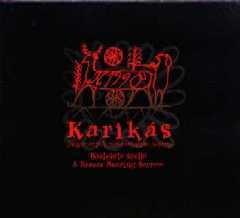|
 Karikás ensemble was founded in 1978. The choice of name Karikás refers to an everyday implement used by the shepherds living in Hortobágy.
Karikás ensemble was founded in 1978. The choice of name Karikás refers to an everyday implement used by the shepherds living in Hortobágy.
In choosing the name the members of the ensemble want to make it clear that they come from Debrecen the capital of Hortobágy. Their object is twofold: not only do they intend to reproduce traditional music, but they also seek to transform authentic pieces by means of the multitude of their musical instruments and their knowledge of music. They search for new sounds, rhythms and contrasts always emphasising the importance and substance of melodies. They have won widespread professional acknowledgement thanks to the release of their album. This is how their music has been reviewed: Each song has the unique sound of its own. The colourful production of songs rich in ideas, justifies the musicians’ outstanding skills. It is worth listening to the individual tunes and traditional melodies. In addition to being rich in ideas they magnificently fit in with the ‘sound world’ of folk music. The performers play each instrument with style and at a high standard. They have managed to protect and preserve the character and spirit of folk music. Throughout of their existence of nearly twenty years they have given a good number of greatly successful performances in concerts and festivals both in Hungary and abroad (Finland, Poland, Austria and Russia). Listening to their play one can feel the joy that music generates in the musicians.
Anikó Dénes - vocal, gardon
Erika Juhász - vocal
Csaba Hegedűs - viola, koboz, zither
Ottó Rőmer - violin, koboz, tambur
Tamás Erményi - double bass
István Erményi - flute, clarinet, viola
| 1. | Átokdal (3:18) | | 2. | Kövecses víz (2:49) | | 3. | Hová mész (4:05) | | 4. | Ez a világ (4:09) | | 5. | Ludasim pajtásim (2:32) | | 6. | Kapum előtt (3:10) | | 7. | Búélesztő szellő (2:59) | | 8. | Nem szánt (4:18) | | 9. | Csendes (3:55) | | 10. | Hideg szél (2:37) | | 11. | Sokfelé (2:59) | | 12. | Vendégküldő (2:49) |
|
